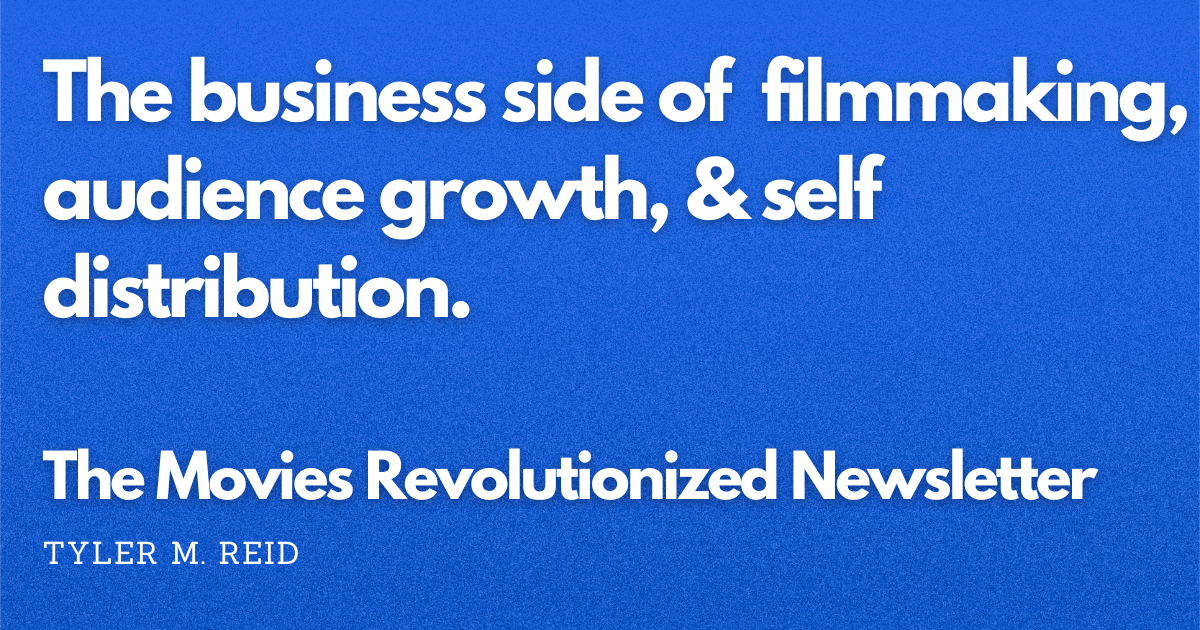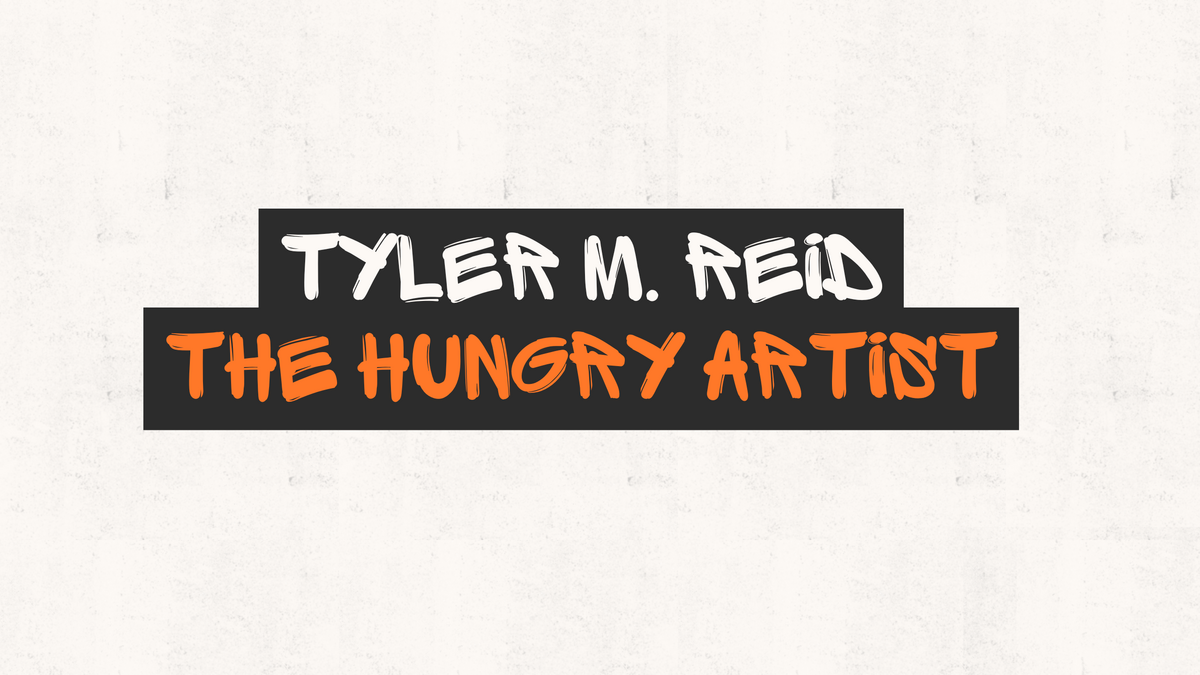Nothing can happen until the script is written.
That might sound obvious, but I can’t tell you how many times I’ve been in conversations about budgets, production schedules, or even visual effects where the script wasn’t finished. People want to know: What’s this going to cost? But without a script, that question doesn’t even make sense.
The script is the first important piece of the puzzle. It’s the blueprint that tells you what kind of film you’re actually making, and from there, what it’s going to take to make it.
I'm hosting a live digital talk with producer Daren Smith on September 23rd. This is the first in a series of live talks with producers, directors, distributors, and marketers.
The goal is to give you tips and insights from people in the industry, from the indie level, all the way up to overseeing huge theatrical distribution.
Step into the conversations I am already having with my industry network.
The live talk will also have room at the end for Q&A from viewers.
If you want to join the live talk, check out this link: https://www.youtube.com/live/n7KXflMSf_0

If you use code DAREN for the Filmmaking Lab, you will get $30 off.
Why the script matters first
Every single decision in filmmaking flows from the script.
Do you need two actors or twenty? A single house location or ten different cities? A car chase, a spaceship, or just two people talking in a coffee shop?
All of that determines the size of the crew, the number of shoot days, the complexity of postproduction, the marketing strategy, and ultimately, the cost.
Without a script, you can throw out averages, sure. You can say: “Well, the average day rate for X is this much.” But that’s like saying, “How much does a house cost?” The answer depends on whether you’re building a one-bedroom cabin or a three-story mansion.
The script defines the scope.
Real-World Example: VFX
My wife is a VFX supervisor, and she gets this question all the time: “How much will VFX cost for my project?”
But if there’s no script, the conversation can’t even start. She can’t know if she’s being asked to create fake blood for a gunshot or create an entire alien world. Both fall under “VFX,” but they’re worlds apart in terms of time, budget, and complexity. Yes, things change when the film goes into production, but in that first stage, everyone can get an idea of what it’s going to cost.
The script is what makes that distinction.
Real-World Example: Virtual Production
As a virtual production producer, I face the exact same situation. People ask me all the time: “How much does virtual production cost?”
And again, without a script, it’s impossible to answer.
Sure, there are average daily rates for LED stages, crew, and equipment. But the real cost depends on what’s inside the script. Are we talking about three dialogue scenes in a static location, or an entire movie that takes place on Mars? Those are very different builds, very different needs, and very different budgets.
It all comes back to the script.
The reason I bring up VFX or Virtual Production is because I want you to see something “tangible”. It would be easy for me to say, as a production manager I couldn’t even start my job without the script because then we wouldn’t have the budget and we wouldn’t know what the locations would cost, or equipment, or the hundreds of other things needed. When you’re looking at the whole forest it’s hard to focus on one tree.
Creative Clarity
The script doesn’t just help with numbers. It also gives creative clarity.
Without a script, you don’t know if that location is really the right location. You don’t know what the “scene” is saying. You don’t know if the mood should be tense and shadowy or light and romantic. I mention this here, because it’s not uncommon for people to get so excited about their film and begin “location scouting” even though they don’t have a script, or begin discussing costumes and other creative aspects.
Sure, of course you’ll have an idea but what you are doing is actually giving yourself "“more” work. Like the adage, work smarter not harder. When you have a finished script then you KNOW what you need.
The script is what tells every department how to approach their work. The production designer can’t sketch sets without it. The costume designer doesn’t know if they’re dressing cowboys or astronauts. The cinematographer doesn’t know if they’re planning night shoots or day exteriors.
And you, as the producer or director, can’t really communicate the vision until it’s on the page.
First pass budgeting
This is where you can get stuck. You want to raise money, pitch investors, or even apply for grants as soon as you can, but without a fully finished script, none of that can happen.
Without that, you can only talk in vague hypotheticals. Investors and partners don’t put money into hypotheticals. They want a script so they can see the story, visualize the scale, and understand where their resources are going.
The script is what unlocks the first true budget draft. You can do broad strokes without it, but you can’t dive into the real line by line costs until the words are on the page.
The script evolves
Now, does that mean the script has to be 100% locked before you do anything else? Of course not.
Scripts change. They get revised in preproduction. They get adjusted during production. They even get re-shaped in post.
But you still need a draft to start from. A working version that sets the foundation.
Think of it like a map. You can change your route as you go, take detours, and find shortcuts. But without a map, you don’t even know which direction you’re heading.
Don’t waste energy trying to pin down exact numbers, schedules, or creative decisions without a script.
If you’re still in the idea stage, that’s fine, but know that the real work begins when you commit those ideas to pages. That’s when you can have meaningful conversations with collaborators. That’s when you can budget realistically. That’s when you can pitch investors or apply for funding with something tangible in hand.
Nothing else moves until the script exists.
Slow is smooth, smooth is fast.
It’s easy to get ahead of yourself in filmmaking. We all do it. We get excited about casting, about locations, about special effects. But all of that is downstream from the script.
The script is the foundation. It’s the blueprint. It’s the first thing you need before you can build anything else.
So if you’re stuck, wondering how much your movie will cost, or how to convince people to come aboard, the answer is simple.
Finish the script.
Because nothing can happen until the script is written.
If you take the time to get the script right (slow and smooth) everything can move faster after that.

